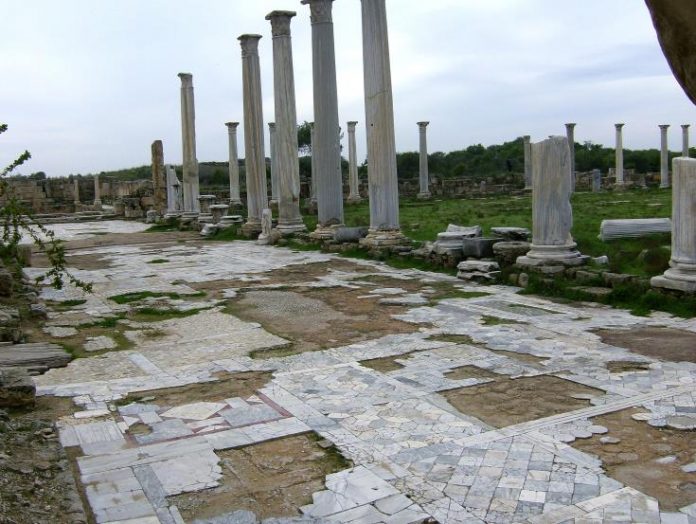CNA
A Russian collector attempted to sell on ebay a treasure of the cultural heritage of Cyprus, a marble from ancient Salamis, situated in the Turkish occupied areas of Cyprus. The online auction was stopped thanks to the immediate intervention of Tasoula Hatzitofi, a refugee from Famagusta, activist and author.
According to a press release, an activist living in San Francisco alerted Hatzitofi about the auction. Through her organization Walk of Truth, operating in Hague, Netherlands, Hatzitofi, obtained a license from the site for preventive information of any antiquities that will be sold on ebay. Hatzitofi asked the ebay management to withdraw immediately the specific marble from the auction and to bring her in contact with the collector who was auctioning it.
“Our goal,” said Ms. Hatzitofi, “is to find out when and how this piece of marble was removed from Salamis and the occupied territories and who the smuggler is. We must turn to art dealers and raise awareness among collectors and owners to donate it back to Cyprus”.
Hatzitofi, who studied sales on Ebay with UCL University Professor, Mark Altawee, found out that Cyprus is the 3rd country in antiquities sales on the site.
Walk of Truth has been registered as a not-for-profit foundation in the Netherlands since 2011. It draws on a broad network of high-level contacts in the worlds of government, museums, cultural agencies including UNESCO and Interpol. It has co-organised debates on responses to cultural crime in the Peace Palace in The Hague and the House of Lords in London. Its founder Tasoula Hadjitofi has 30 years of experience in tracking down and repatriating antiquities looted from Cyprus and sold worldwide.
Cyprus has been divided since 1974 when Turkey invaded and occupied its northern third.
The uncontrolled situation in the Turkish-occupied area of Cyprus after the Turkish invasion in 1974 has fostered the development of a network of dealers in illicit antiquities whose aim was to sell out the cultural heritage of Cyprus. With the encouragement and help of the Turkish army, the trade in illicit antiquities has brought great profit to those involved, and Cypriot treasures already adorn private collections in a number of countries including Turkey, Russia, Switzerland, Holland and the UK, and even as far as the US, Australia and Japan.
More than 500 churches situated in the areas under Turkish occupation since 1974 have been destroyed, plundered and looted or turned into stables, warehouses, restaurants and hotels. The Cyprus government and the church have repeatedly protested to the UN, the World Council of Churches and many other international and religious organisations.





















